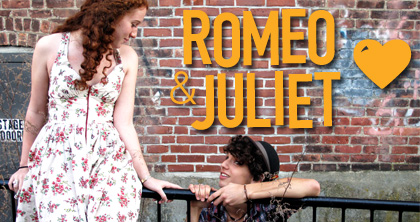Alright so listen. Sleep No More ain’t what it used to be.
I’ve been to the McKittrick Hotel three times now. The first was during its supposed short-term run WAAAYYY back in the spring of 2011. It was one of the most epic theatre experiences of my life; so creepy, so moving, so very creative. It was so awesome that I knew I had to take my best beloved to see it as soon as I could.
Turns out “as soon as I could” had to wait a few years; but we got there in the summer of

A shot from our 2012 trip; this was taken over drinks at Gallow Green
2012; just as Gallow Green (the rooftop bar addition) was opening up. He loved it; I loved it; we had a blast.
This trip, we knew that we had to go back in and see it again. There are just so many permutations of adventure to go through and so much to do inside the hotel. I hadn’t tasted nearly enough of the candy, and who knows? Maybe we could get a glimpse of the elusive sixth floor? He hadn’t had a one-on-one yet, and I knew I wanted to see more of the story. So the other evening we went.
I’m sorry to say that this once-epic experience has definitely gone downhill since it first opened; and not because the performers aren’t spectacular (they are) or the immersive environment isn’t receiving the care and attention it needs to stay immersive (it is); but rather because the crowds of people who attend the show are no longer respectful of the environment, the experience, or even fellow audience members.
For those who are unfamiliar, go check out my review of the first performance I saw to get cozy with the concepts that I’m about to discuss.
Never before have I seen so many half-masked/unmasked people wandering the halls of the McKittrick. While I hadn’t witnessed this phenomenon in previous visits, these days guests seem to think that the “wear your mask at all times” rule doesn’t apply to them. Additionally, I heard more cross-chatter from guests than I have in previous years. Try as you might to whisper, when there’s no talking allowed in the hotel, a human voice really carries.
Worst of all was the way that the guests behaved to each other. There was so much pushing, shoving, and other attempts to get to “the front” that I gave up even trying to follow performers about midway through the performance. The now famed “one on one” aspects of the performance seem to be a much sought after prize and McKittrick guests are willing to fight to be chosen. Several times, I experienced being shoved away from a performer so that someone could get in front of me in hopes of being selected for a one-on-one. Several other times I was standing in a mostly-empty room surveying a performer from a respectful distance when new arrivals would push past me to stand between me and the performer leaving the performer without enough playing space and me with a frustrated shoulder-chip.
I find this to be really sad. Sleep No More was a true pinnacle of theatrical experience for me, and to have it so ruined by others was a shame not just for me but also for the thespians who work so hard to keep this show running.
I think part of the problem is a real “hands off” attitude from the proprietors of the McKittrick. In an effort to keep the experience mysterious, Punchdrunk’s employees are notoriously tight-lipped about how to behave while inside the hotel. I understand that appreciating the experience is up to the individual, but a set of “official/unofficial” rules and regulations about how to treat other guests (and, by the way, the performers) would go a long way, I think, towards curbing the problems which led to my extremely negative experience of the piece.
I hate to say it, but if this kind of behavior continues from the guests, Sleep No More is going to very quickly lose interest for turned-off patrons who don’t want to literally fight to see the show.
In an effort to rehabilitate the Sleep No More audience, I offer unto the internet a few pointers about how to comport yourself while inside the McKittrick. I’ve crafted these with one thing in mind: that if we can help each other have the best possible experience, we can all enjoy the show for years to come.
1) Spatial Awareness: while the SNM mask definitely cuts off your peripheral vision and creates a feeling of being alone in the scene, try to be aware of who is around you and how long they’ve been standing there. If you walk into a room with others already in it, try not to block their view (they were there first, after all!). Also, keep some sense of where your neighbors are when watching a scene. The actors can move pretty quickly sometimes, and you may have to duck out of the way to avoid legs, arms, or flying objects. You want to make certain that you have some space to do so, and that you’re leaving such space for those around you.
2) Respectful Following Distance: even though part of the “shtick” is to be a part of the scene, you still want to give the actors enough space to do their thing. They need to be able to move around, get to the props they need, and even meet up with scene partners sometimes. Try to leave them enough room to perform when you pause to observe them. If you happen upon other McKittrick guests with a performer, don’t just assume that the space between the guest and performer is a “free spot” to stand; you might have just walked into the space that the guest specifically made for the performer to perform. Stand behind other patrons as much as you can, and try not to breathe down anyone’s neck.
3) Right of Way: following performers around the hotel is definitely part of the fun; but if you see that there are guests already following an actor, try to trail along at the back of the pack rather than push to the front. The people who follow most closely have probably been following the character for some time and have a vested interest in the story that is unfolding; there’s room for everyone, but you wouldn’t want to scoop another patron on seeing the story that they’ve put so much time and investment into. This is doubly true if you’re a slow walker, or if you’re in a group. The actors move quickly and it can be easy to lose them without a vested effort; don’t block someone else from following through on what they’re trying to do. Fall into the herd and start following as well! As others peel away, you can have your turn at the front of the pack.
4) Don’t “Game the System”: especially with the blog-o-sphere so active with how to get this one-on-one, or how to achieve that goal inside the hotel, it’s easy to go in with a desire to “win” the “game”. This attitude will only make you disappointed if you, for some reason, fail to accomplish what you set your mind to (which could easily happen depending upon so many different factors outside of your control). This experience is meant to be savored; not graded. Remember why you fell in love with the show in the first place and try to let the experience wash over you. Competitive drive will not only ruin your experience, but also that of those around you since it will make you more likely to exhibit the kinds of behaviors that deprive other guests of a good time. The point is not to “win”. The point is to enjoy.
5) Trust: Trust that Punchdrunk has something in mind when they request that you not talk or take your mask off during the performance. If these rules seems “stupid” or “bad”, try to dig beneath that instinct and ask yourself why you find them to be so. If you grow nervous or scared, either embrace it as part of the experience or take a break in the bar for a while (the ushers, I’m told, are very good at helping you find it if you need it for this reason). Taking your mask off or speaking breaks the environment for others who, by the way, paid the same ticket price you did. Don’t allow your negative experience to ripple out. Also, trust that the actors see and take note of you, even if they don’t acknowledge your presence (they’re not supposed to, after all). Yes, there will be one person chosen from a crowd for a one-on-one; you do not need to make yourself the most “obvious” choice.
The actors are quite good at realizing who has been there for a while, and who has developed a sort of “rapport” with them. Attempting to push the issue is obnoxious.
When Punchdrunk uses the phrase “fortune favors the bold”, they mean that you should be brave, explore, and see what you can find in the hotel. They also mean that if, should an actor offer you a one-on-one or some individual attention, you should take them up on it. They do not mean “push your way to the front of every pack”; they do not mean “do your best to be everywhere all at once”.
Relax, have fun, and enjoy the show. That’s the best way to keep your behavior from preventing others from doing the same.





 was new and different because Stomeham coupled their adult company with their teen company so the adults played adults and the teens played teens.
was new and different because Stomeham coupled their adult company with their teen company so the adults played adults and the teens played teens.